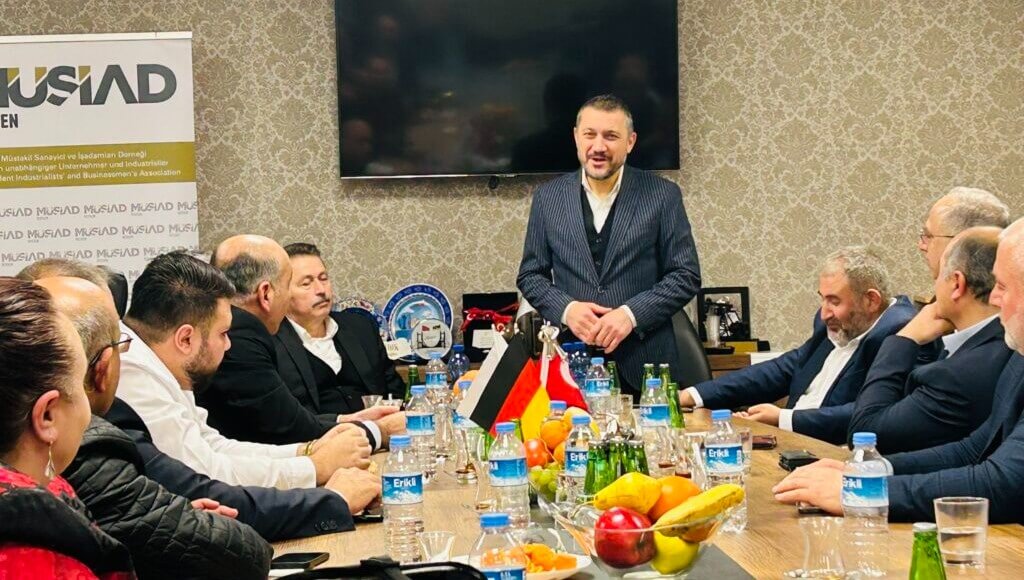Turkish President Recep Tayyip Erdoğan, leader of the ruling Justice and Development Party (AKP), canceled a visit to Berlin scheduled for Friday after the German government called on him to publicly criticize a controversial speech recently made by an AKP lawmaker in the German city of Neuss, according to a report by the RedaktionsNetzwerk Deutschland (RND).
In video footage circulating on social media last week, Mustafa Açıkgöz, an AKP lawmaker, is seen calling for the “destruction” of supporters of the outlawed Kurdistan Workers’ Party (PKK) and the faith-based Gülen movement during a meeting of the Grey Wolves, which are seen as the paramilitary wing of the far-right Nationalist Movement Party (MHP), an ally of Erdoğan’s AKP.
Açıkgöz’s speech led scores of people in Germany to file a criminal complaint against the MP, and the German Foreign Ministry warned the Turkish ambassador, saying that “hate speech has no place in Germany” and that what Açıkgöz did during the meeting in Neuss “must not be repeated.”
Deutsche Welle Turkish service previously shared the details of Erdoğan’s schedule in a report, saying the president was preparing to pay a visit to the Polish capital of Warsaw and then Berlin on Jan. 27 and 28 and meet with German President Frank-Walter Steinmeier and Chancellor Olaf Scholz.
According to a report by Can Merey from the RND newspaper group, which is based on sources close to the ruling AKP, Presidential Spokesperson İbrahim Kalın and Jens Ploetner, foreign policy advisor to Scholz, couldn’t agree on the topics for the meeting.
Merey said Erdoğan didn’t agree to publicly criticize Açıkgöz for his controversial speech in Neuss as he was asked by the German government to do.
Meanwhile, Fulya Canşen, a columnist for the T24 news website, said federal government officials want to meet with Erdoğan after Turkey’s parliamentary and presidential elections slated for May.
Pointing out that there are 1.5 million Turkish voters in Germany, Canşen added that foreign election campaign events in the country must be approved by German authorities in advance.
A law introduced in 2017 bans non-EU leaders from campaigning on German soil within three months of elections in their country. Foreign officials also need to file a request with the German government to hold any kind of political event in Germany.
The law came after a handful of Turkish politicians campaigned in Germany ahead of a referendum on changes to the constitution that would bolster Erdoğan’s powers as president. Turkish residents in Germany were allowed to take part in the vote.
However, a number of local German authorities blocked Turkish lawmakers from speaking, citing security concerns. The move left Erdoğan infuriated by what he described as “Nazi era tactics.”
The Turkish government accuses the Gülen movement of masterminding a failed coup on July 15, 2016 and labels it a “terrorist organization,” although the movement strongly denies involvement in the coup attempt or any terrorist activity.
The PKK is listed as a terrorist organization by Turkey and much of the international community. More than 40,000 people, including 5,500 security force members, have been killed in four decades of fighting between the Turkish state and the PKK.



